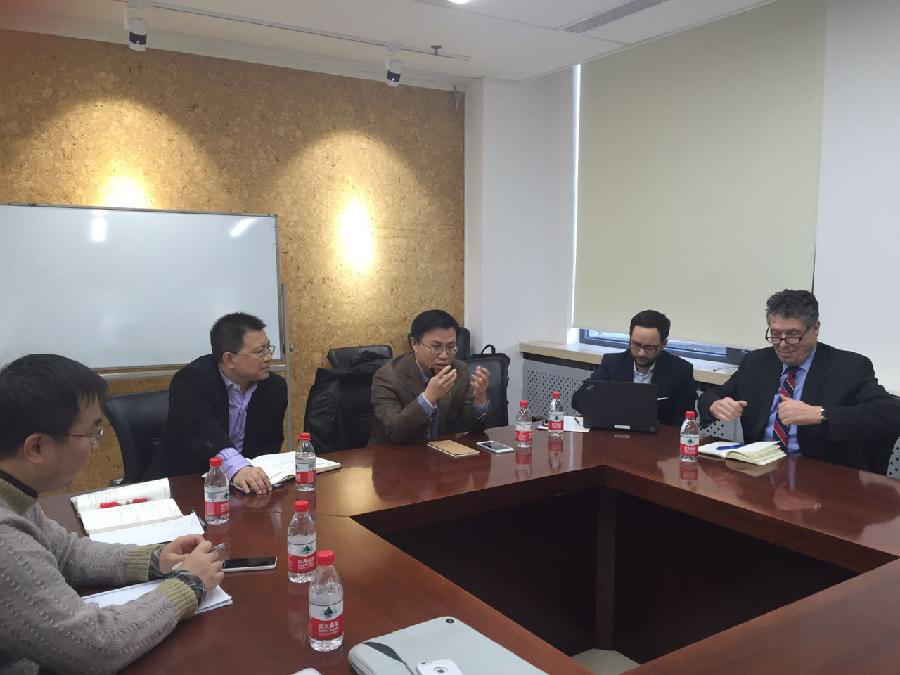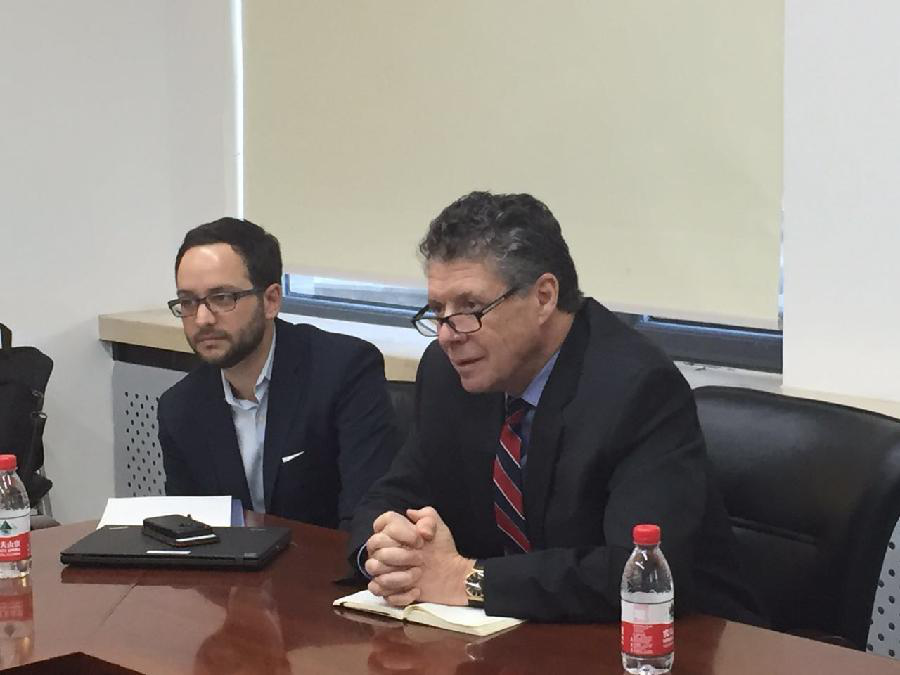Invited by the Institute for Global Cooperation and Understanding of Peking University (iGCU) and American Studies Center of Peking University, Dr. David Gordon, Senior Advisor and former Chairman of Eurasia Group, a famous American strategic risk analysis company, part-time researcher of Center for a New American Security and part-time professor of Walsh School of Foreign Service of Georgetown University, visited the School of International Studies, and held a symposium with our faculty and students at 10:30-12:00 am on December 10, 2015. Nicholas Consonery, Director of China Macro & Policy Group, Eurasia Group, Professor Ding Dou, Associate Professor Yu Tiejun, Associate Professor Chen Shaofeng, Dr. Jie Dalei, Dr. Liu Lianlian and a dozen of postgraduates and doctoral students from School of International Studies, Peking University attended the symposium. The symposium was presided over by Professor Wang Dong, Executive Director of iGCU.

Professor David Gordon, who spent more than ten years working at the highest levels of U.S. foreign and national security policy processes, is former Chairman of Eurasia Group and former Director of Policy Planning for the U.S. Department of State. He has long focused on China. First, he reviewed the past China-U.S. relations during the administration of Xi Jinping and Obama and explained the current China-U.S. relations. He pointed out that the most important characteristic of the current China-U.S. relation is the stabilization of bilateral relations. Professor Gordon also elaborated that there is little chance that China will again become a major issue in the upcoming 2016 U.S. presidential campaign. However, risks remain. First, the escalation of the South China Sea dispute. Even if there is no direct conflict between China and the United States, the conflict between American allies and China will make China an important topic in the campaign. Second, the increasingly serious issues on Dollar against Euro and RMB. If the currency issue is listed in the election agenda, so will China. Third, the risky Taiwan issue and Korean Peninsula. And fourth, the possibility of the collapse of the agreements on network that have been reached.In the meantime, he estimated the trend of China-U.S. relations after the inauguration of the new U.S. president in 2017 based on his observation and experience. In his opinion, the inauguration of the new U.S. president coincides with the 19th National Congress of the CPC, so it is unpredictable that what political pressure President Xi will face, and China-U.S. relations in 2017 will not be optimistic. He assumed that China may become a more important target for Islamic extremists in the next two years, but it also means that China and the United States will share more common interests in fighting against terrorism. The terrorists, energy and security issues in Islamic States actually created favorable impetus for Washington and Beijing.

Finally, Professor Gordon had a positive interaction with the teachers and students and discussed such issues as Trans-Pacific Partnership Agreement (TPP) passed by the United States Congress, high political risks faced by China's Belt and Road Initiative, the tussle between China's westward development and extremist's "eastward development", and the possible attitude of the new President towards the Middle East. The symposium covered many hot issues in China-U.S. relations. Professor Gordon's analysis on the 2016 U.S. presidential campaign also provided an opportunity for the teachers and students to observe the campaign closely. Professor Gordon expressed his willingness to further strengthen exchanges with the School of International Studies of Peking University.
